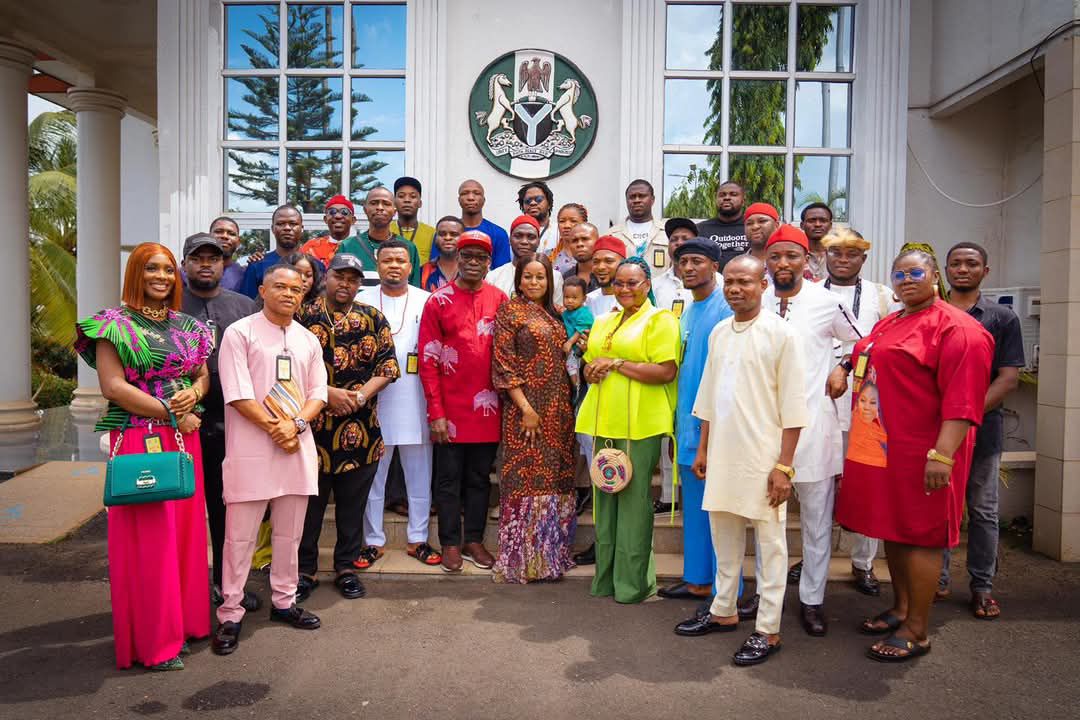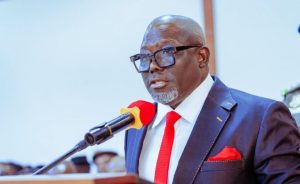Anambra Turned into a Stage Play as Soludo Recruits Skit Actors to Showcase Janglover
It is often said that leadership is not just about lofty ideas but about a sensitive balance of perception, execution, and public trust. In Anambra State, however, Governor Charles Chukwuma Soludo appears to be skating further away from this balance. His actions and utterances increasingly project not only detachment from the cultural soul of the state he governs but a condescending disdain for the very people whose mandate he enjoys.
A recent decision by Governor Soludo to allegedly bypass local entertainers, skit makers, and media stakeholders in favor of inviting outsiders to a state-sponsored entertainment and cultural project has sparked outrage. The incident is only the latest in a growing list of controversies that paint a disturbing portrait of a governor seemingly disconnected from the realities and sensitivities of his own people.
From his prior dismissive comments labeling Anambra youths as “lazy,” to more recent references to them as an “illiterate population,” Soludo’s increasingly tone-deaf rhetoric continues to alienate the very demographic that carried the hopes of a digitally literate, entrepreneurial, and globally competitive Anambra when they backed him in 2021. Now, with the alleged snubbing of the Anambra State chapter of the Nigeria Union of Journalists (NUJ) and the wholesale importation of content creators from outside the state, it appears the Governor is writing a new chapter: one that risks turning the state into a caricature, a political skit with no comic relief.
Governor Soludo’s pattern of public commentary towards the youth of Anambra betrays a paternalistic and sometimes outright contemptuous view. It began with a condescending dismissal of the entrepreneurial energy of young people, dismissing their efforts and ambitions with the label “lazy.” That statement was widely condemned at the time, but the Governor doubled down, later referring to Anambra’s youthful population as an “illiterate population of Anambra State,” an acronym that has been picked up by critics and dubbed IPOAS.
Such language from a sitting governor is not only unbecoming—it is harmful. It fuels a narrative that disparages the very demographic that has put Anambra at the forefront of innovation, entertainment, digital entrepreneurship, and global business. Anambra youths, through their sheer will and creative energy, have built online platforms, exported digital services, created skits and content that have gone viral nationwide, and sustained themselves in a country that often fails them.
YOU MAY READ
Beyond the Flag: Why Tinubu’s Endorsement of Prince Ukachukwu Signals a New Dawn for Anambra
For a governor who campaigned on the promise of “solution,” such a sustained verbal assault on his most dynamic constituency presents a contradiction. It undermines confidence, crushes morale, and risks creating a sense of estrangement between government and governed.
In what may well go down as a tone-deaf miscalculation, Governor Soludo’s government allegedly bypassed the Anambra chapter of the Nigeria Union of Journalists (NUJ), sidelined local skit makers and actors, and instead chose to import entertainment practitioners from outside the state for a government project aimed at boosting local creativity.
Observers have noted with alarm the implications of this: why would a state that birthed Nollywood giants, cultivated world-renowned writers, and nurtured an ecosystem of skit makers who have garnered millions of views online, feel the need to “import” creative talent?
The optics are terrible. It sends a message that Anambra’s homegrown talents are not good enough. It echoes colonial logic—foreign is better, local is inferior. It disregards years of effort, struggle, and creative investment made by local entertainers trying to put Anambra on the map without government support.
Moreover, it diminishes the credibility of the state’s media ecosystem. To sideline the NUJ, a body whose members have sustained the Fourth Estate in the state for decades, is to declare war on press professionalism. It is to treat journalism, creativity, and civic engagement as disposable in the Governor’s relentless quest for a sanitized, PR-driven version of “Anambra Progress.”
What is perhaps most ironic in this entire saga is that, in trying to revamp the state’s public image through imported creativity, the government may have unwittingly turned itself into a national punchline. “Anambra is now a skit,” one critic quipped, referencing the viral trend of turning serious state matters into farcical sketches.
YOU MAY READ
Go and Secure Anambra for APC — Tinubu Charges Ukachukwu, Presents Party Flag
From the theatrics of awarding contracts to cronies without public scrutiny, to exaggerated promises and flashy ceremonies with little substance, the state seems to be drifting toward a performance-based governance model—style over substance, drama over delivery.
There are concerns that state institutions are being used as stage props. The once-proud Anambra Government House, constructed during the Mbadinuju era and maintained by successive administrations, is now allegedly being considered for use as a backdrop in some upcoming “skit productions.” If true, this would be not only symbolic but tragic—a physical manifestation of a governance model that prefers lights and cameras to hard work and results.
It is hard not to notice the growing cultural disconnect between Governor Soludo and the people of Anambra. For all his academic credentials and global experience, the governor has failed to effectively translate those credentials into a people-first leadership style. Governance is not an academic thesis. It is about human engagement, community sensitivity, and political humility.
Soludo often appears more concerned with defending his ego than listening to the people. Criticism is met with sarcasm. Dissent is caricatured. Youthful agitation is labeled criminal. This pattern has generated not only bad press but simmering resentment within key segments of the state’s demographic—especially the young, the creative, and the politically conscious.
Soludo’s supporters argue that he is being misunderstood; that his tough-love approach is necessary to shake the state out of mediocrity. But good intentions do not excuse bad execution. And certainly not a tone that demeans rather than uplifts.
Observers say that what Soludo is doing is part of a long-term political calculation—an attempt to consolidate power and position the All Progressives Grand Alliance (APGA) for 2027. By allegedly turning the Government House into a de facto campaign base and media hub, he may be laying the groundwork for a high-tech, propaganda-heavy political battle in the coming years.
But this strategy may backfire. Already, APGA is struggling to maintain its regional grip. The alienation of local stakeholders—NUJ, youth groups, actors, skit makers, traditional leaders—does not bode well for grassroots loyalty.
Finally the Governor of Anambara State Prof Charles Soludo has done it again.
Originally he said ANAMBARA YOUTHS are LAZY,then he called them and I quote “My youths are “Illiterate Population of Anambara State “(IPOAS) and now ,he bypassed the NUJ in the state,the ACTORS and Skit makers and import outsiders.. showing that now ANAMBARA is a SKIT.
I am sure they will be using our JANGLOVA as a SKIT making PROPS and then the Mbadinuju constructed Government House may be used as APGAPC fortification ground..Penofthe Godz





